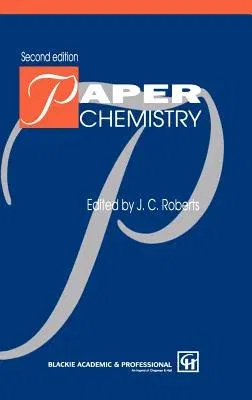Although the title of this book is Paper Chemistry, it should be
considered as a text about the chemistry of the formation of paper from
aqueous suspensions of fibre and other additives, rather than as a book
about the chemistry of the raw material itself. It is the subject of
what papermakers call wet-end chemistry. There are many other excellent
texts on the chemistry of cellulose and apart from one chapter on the
accessibility of cellulose, the subject is not addressed here. Neither
does the book deal with the chemistry of pulp preparation (from wood,
from other plant sources or from recycled fibres), for there are also
many excellent texts on this subject. The first edition of this book was
a great success and soon became established as one of the Bibles of the
industry. Its achievement then was to collect the considerable advances
in understanding which had been made in the chemistry of papermaking in
previous years, and provide, for the first time, a sound physico
chemical basis of the subject. This new edition has been thoroughly
updated with much new material added. The formation of paper is a
continuous filtration process in which cellulosic fibres are formed into
a network which is then pressed and dried. The important chemistry
involved in this process is firstly the retention of col- loidal
material during filtration and secondly the modification of fibre and
sheet properties so as to widen the scope for the use of paper and board
products.

